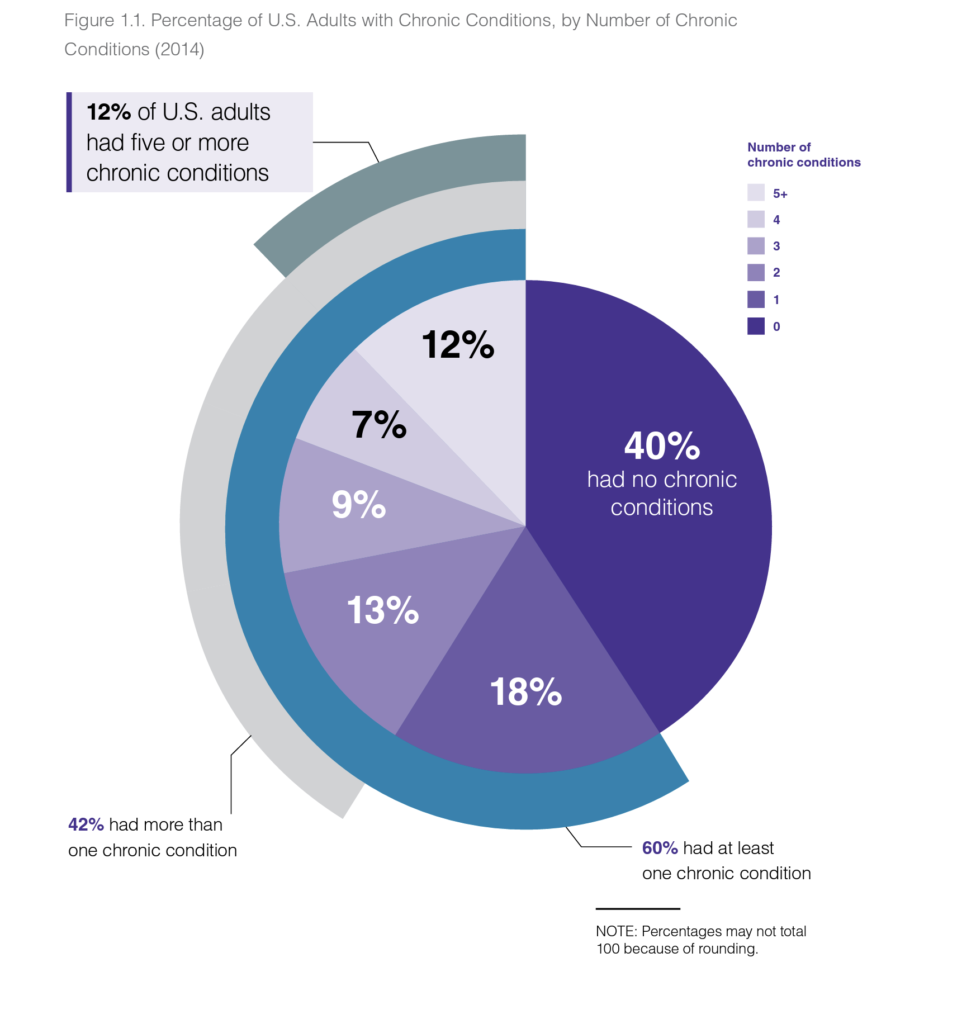I once gave a talk to a room full of physicians of various specialties. Here’s what I said:
“Today, as you all know, 73% of Americans are either overweight or obese. Diabetes is ten times more common than it was a hundred years ago. Anxiety and depression rates among children in particular are skyrocketing. Now just imagine a hypothetical thought experiment. Suppose for a second that we physicians did not exist. What would have happened to the rates of diabetes, obesity, anxiety and depression? Would they have been a lot higher, lower, or roughly about the same?”
Physicians are not Preventing Illness
I paused to hear their discussion which I fully understood and anticipated because I’m also one of them. “They would be largely about the same,” was the consensus. In fact, not a single physician voiced disagreement. In contrast to our titles as primary care (as in preventive care) doctors, most of our work involves trying to prevent complications once illness has already set in. That is, doctoring as we do today would be almost obsolete except for the fact that we are trying to prevent complications of a range of various chronic illnesses that we largely never had until the modern era.
Now this is not entirely true, we do some important cancer screening and immunizations that do prevent illness. Nor am I suggesting to my colleagues that they should quit. The work of preventing complications (or secondary care) is important and without it many people would be far worse off. However, the fact of the matter is that about 75% of the care we provide is for chronic diseases that are in most cases almost entirely preventable.
Most Chronic Diseases are Easily Preventable
Let that settle in for a minute. That means, we doctors are largely not preventing illness but rather working by applying increasingly sophisticated bandaids in the form of medications and procedures for illnesses that we as a people largely never had in the first place. Folks, allow me to let you in a little secret: there is nothing to celebrate here. Here’s the truth: 90 percent of type 2 diabetes, 80 percent of CAD, 70 percent of stroke, and 70 percent of colon cancer are preventable just with following the sort of healthy lifestyle that we humans had been successfully following for about 99.9% of our existence as a species. I actually think these percentages are conservative if anything (and there are many other preventable chronic disease not on the above list). Looking at the rates of these chronic ailments among modern day hunter gatherers leads me to believe that far more of these are preventable illnesses.

But what about all the infectious diseases we have conquered? That surely represents real progress. It is largely driven by a few factors: sanitation, vaccines, and antibiotics. Thankfully, the modern world solved a huge problem that we faced in large part after the agricultural revolution. But, why can’t we take the good without the bad? Why can’t we eradicate infectious diseases without then developing the chronic diseases of the modern world?
Increasing Technological Innovation is not an Sign of Progress
The prevailing wisdom is that medicine has come a long way. Today we have an impressive arsenal of increasingly sophisticated technological solutions: MRI/CT scans that can get cross sections of your body, quadruple bypass surgery, medications like ozempic that control diabetes and reduce weight, stomach stapling surgery to treat obesity, dialysis machines that can filter the blood when the kidneys fail, etc. The only problem is, we never ought to have developed these “lifestyle” diseases to begin with. Moreover, we physicians are just treating chronic diseases with these band-aids so that people can go back to working and living in the same toxic environments that brought them to us in the first place.
What about the few who would have developed heart disease nonetheless. What of those few who despite living healthy still develop these diseases? Admittedly, we doctors would not be as good at managing diabetes, heart disease, or stroke if it were rare. Less practice with these ailments means less experience and so the quality of care of those few would likely diminish. But should we be celebrating the technological innovations that we only have thanks to the burden of disease we have today? Likewise, should we be spreading polio around so that we physicians gain (or re-gain) the expertise in treating the rare case of polio? How foolish! Indeed.

